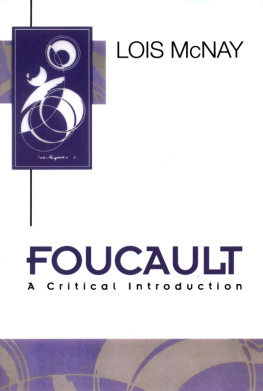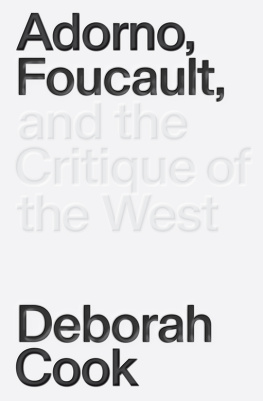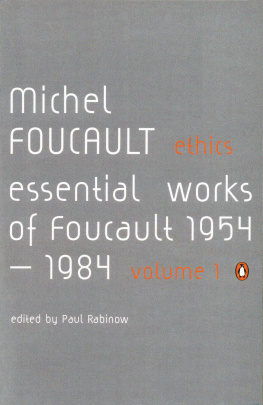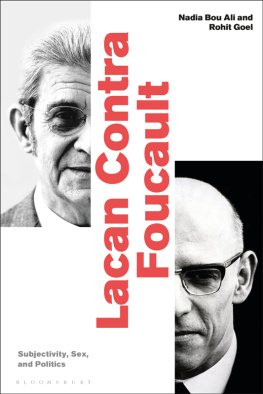ROUTLEDGE LIBRARY EDITIONS:
POLITICAL THOUGHT AND POLITICAL PHILOSOPHY
Volume 41
DOMINATION AND POWER
DOMINATION AND POWER
PETER MILLER
First published in 1987 by Routledge & Kegan Paul Ltd
This edition first published in 2020
by Routledge
2 Park Square, Milton Park, Abingdon, Oxon OX14 4RN
and by Routledge
52 Vanderbilt Avenue, New York, NY 10017
Routledge is an imprint of the Taylor & Francis Group, an informa business
1987 Peter Miller
All rights reserved. No part of this book may be reprinted or reproduced or utilised in any form or by any electronic, mechanical, or other means, now known or hereafter invented, including photocopying and recording, or in any information storage or retrieval system, without permission in writing from the publishers.
Trademark notice: Product or corporate names may be trademarks or registered trademarks, and are used only for identification and explanation without intent to infringe.
British Library Cataloguing in Publication Data
A catalogue record for this book is available from the British Library
ISBN: 978-0-367-21961-1 (Set)
ISBN: 978-0-429-35434-2 (Set) (ebk)
ISBN: 978-0-367-25393-6 (Volume 41) (hbk)
ISBN: 978-0-429-28755-8 (Volume 41) (ebk)
Publishers Note
The publisher has gone to great lengths to ensure the quality of this reprint but points out that some imperfections in the original copies may be apparent.
Disclaimer
The publisher has made every effort to trace copyright holders and would welcome correspondence from those they have been unable to trace.
DOMINATION AND POWER
DOMINATION AND POWER
PETER MILLER
First published in 1987 by
Routledge & Kegan Paul Ltd
11 New Fetter Lane, London EC4P 4EE
Published in the USA by
Routledge & Kegan Paul Inc.
in association with Methuen Inc.
29 West 35th Street, New York, NY 10001
Set in Sabon, 11 on 12 pt
by Input Typesetting Ltd, London
and printed in Great Britain by
T. J. Press (Padstow) Ltd, Padstow, Cornwall
Peter Miller 1987
No part of this book may be reproduced in
any form without permission from the publisher
except for the quotation of brief passages
in criticism
Library of Congress Cataloging in Publication Data
Miller, Peter, Ph. D.
Domination and power.
Bibliography: p.
Includes index.
1. Power (Social sciences) 2. Dominance
(Psychology) I. Title.
HM136.M486 1987 303.3 879848
British Library CIP Data also available
ISBN 0-7102-0624-0
For Linda
CONTENTS
I have benefited from the support and encouragement of a number of people in carrying out this study. Particular thanks are due to Graham Burchell, Colin Gordon, and Paul Hirst. Also, to Donald MacRae who acted as supervisor for the thesis on which this book is based. The author, however, has to accept responsibility in the last instance.
A different type of thanks are due to Vera for her typing, and much else besides.
The significance of the phenomenon of power would appear to be self-evident. Whether it be applied to nation states, organisations, or individuals the notion has permeated the public consciousness, and intellectual discussions on the topic continue to proliferate. It is as difficult to escape from debates over power as it is to escape power itself. The question of subjectivity and of the notion of the subject is different. It appears to belong to a different field of debate, one that is more properly philosophical, even esoteric. Doubtless there are complex reasons for this state of affairs. A central one may well be that a culture is remarkably adept at concealing its constitutive features. I am less concerned, however, with explaining this state of affairs than with addressing the implications it has had for the way the phenomenon of power is understood.
My argument here draws heavily on that of Foucault that power and subjectivity have been conceived for too long as fundamentally opposed. Power has been viewed as operating exclusively through the repression of an essential subjectivity. For power to operate it has been assumed that it must have as its effect the crushing of subjectivity. The subject in such a vision rises up from time to time in a valiant struggle against power, but is constantly turned back. Often this will be achieved bloodily, but other means are available also. Sometimes the threat of force will be enough to subdue the possible eruption of subjectivity. Foucault has suggested a directly opposed image of power, one which operates in precisely the other direction, not by repressing subjectivity, but by promoting it, cultivating it and nurturing it. This operation of power via the promotion of subjectivity, however, is not neutral. Subjectivity is always promoted under specific conditions, it is always a regulated subjectivity which emerges out of this process. The discrete mechanisms through which this operates can be termed regulatory practices of the self.
To refer to the title of this book, I suggest that we need to distinguish between domination and power. Domination indicates a particular mode of operation of power, and its identification depends also on a certain philosophical mode of conceptualising power. It is a mode of acting upon individuals or groups of individuals directly counter to their aspirations or demands. It is a phenomenon we witness often in the home, the school, the workplace, and at national and international state levels. It sometimes reaches horrific proportions and at such points may take effect by causing the death of the dominated. Therein lies its ultimate sanction.
Power, by contrast, operates through the promotion of subjectivity and is more resourceful. It is not limited to seeking to deny and to challenge, but attempts to invest the individual with a series of personal objectives and ambitions. Power in this respect is a more intimate phenomenon. It knows the individual better, it does not act on individuals at a distance and from the outside. It acts on the interior of the person, through their self. As a mode of intervention on social relations it is one in which the production of a knowledge of the subject and a mode of acting upon the subject is crucial.
To view power in this way is to suggest the need for a considerable displacement of conceptual principles. It means that we should not allow our understanding and analyses of power to be subsumed under philosophical a prioris. It means also that the route to an understanding of power in western societies may well be via a consideration of the notion of the subject rather than through a conceptual analysis of power.
To address the notion of the subject, however, is to enter difficult waters. The furore which the work of Althusser and his colleagues The true subjects were not concrete individuals real men, but the relations of production. But since these were relations, the category subject, the notion that relations of production were relations between men, was considered a violation of Marxs thought. This interpretation of Marxs thought followed partly from a philosophical















